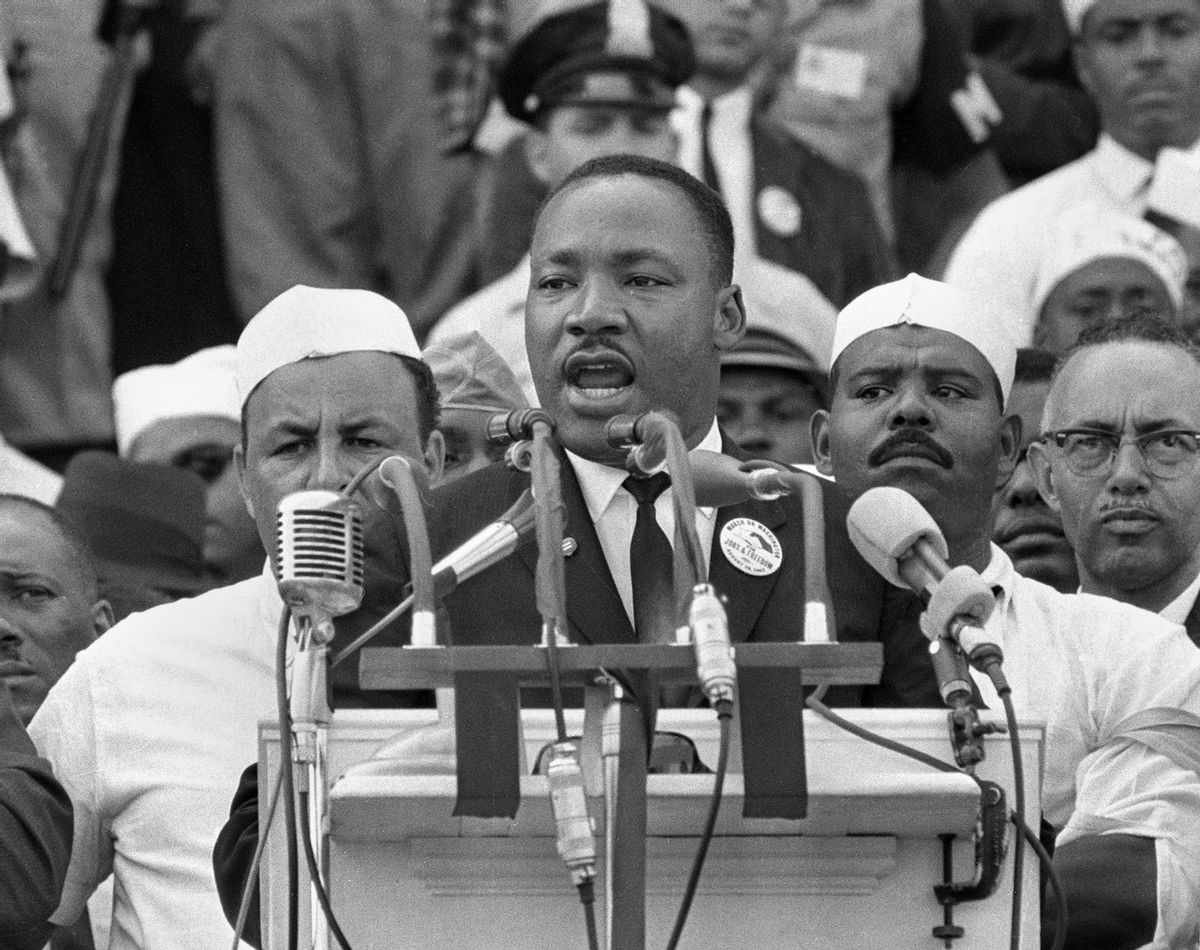Critics of Colin Kaepernick have called him many despicable names, and he's withstood their vicious attacks for over a year now. He’s hardly the first black athlete with a national platform to take a strong public stance on race. Muhammad Ali famously did the same, among many others. But Kaepernick’s commitment to kneeling during the national anthem takes a note out of the book of one of the most beloved figures in our history. Today, Kaepernick faces the same kind of criticism that was directed toward Martin Luther King Jr. in the 1960s.
Bernice King, King's daughter and CEO of the King Center, an educational institute dedicated to preserving and amplifying MLK's message and work, made her feelings clear on Twitter over the weekend.
People didn't approve of the way my father protested injustice either; said he was causing trouble, called him an "outside agitator." #MLK pic.twitter.com/l5cAkiGR6K
— Be A King (@BerniceKing) September 24, 2017
There are other parallels to be made between Kaepernick's actions and MLK. Bernice King and the King Center tweeted photos of MLK bending a knee in solidarity with civil rights activists in various moments throughout the '60s.
The real shame & disrespect is that, decades after the 1st photo, racism STILL kills people & corrupts systems. #America #TakeAKnee @POTUS pic.twitter.com/tRues8mqaH — Be A King (@BerniceKing) September 23, 2017
Many are "more dedicated to order than to justice," offended by kneeling during the Anthem & not by racism & modern-day lynching. #TakeAKnee pic.twitter.com/E23oM1ZW6X
— The King Center (@TheKingCenter) September 23, 2017
“No form of protest, even nonviolent direct action, will be approved by people ‘more dedicated to order than to justice’ or by the unjust,” Bernice King tweeted. “Many who quote #MLK today, and use his words out of context to deter nonviolent protest, would have hated him openly then.” Indeed, at the time, the FBI called King one of the “most dangerous” people in the country, and his “I Have a Dream” speech, revered for his tone of hope and peace, prompted the intelligence agency to launch “one of the biggest surveillance operations in history.” MLK was seen as a radical agitator in his own time, though his nonviolent protest work has been universally embraced since. Some historians have claimed in recent years that MLK’s message has been neutered and softened by a particular lens of history that focuses on his egalitarianism and his mission of peace. Some, including Princeton professor Cornel West, claim that many white people ignore the version of MLK that makes them uncomfortable — the activist who demanded prompt justice. For several years, West has argued against the “Santa Clausification” of MLK. “It’s been co-opted,” Black Lives Matter co-founder Alicia Garza told the Root of MLK’s legacy. “People want to neutralize it.” Even though those who fear progressive activism claim they support nonviolent protest, but when people actually go ahead and protest injustice in a nonviolent way, they’ll have none of it. The Kaepernick controversy comes after Donald Trump called NFL players who took a knee on the field “sons of bitches,” insinuated that they were insulting the American flag and demanded the NFL make them stand up. However, Trump himself tweeted after the Women’s March in support of peaceful protest:
Peaceful protests are a hallmark of our democracy. Even if I don't always agree, I recognize the rights of people to express their views. — Donald J. Trump (@realDonaldTrump) January 22, 2017
It seems like he’s since changed his tune.




Shares